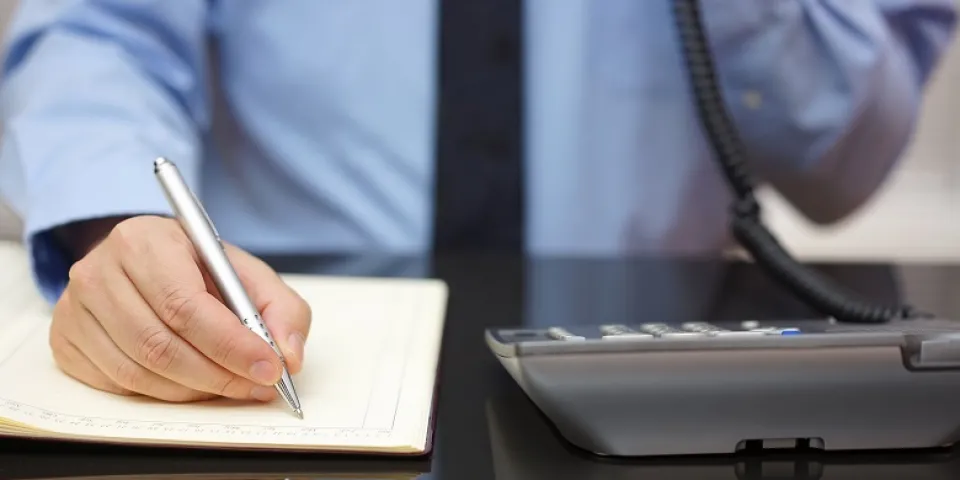Latest
How to Stand out During a Phone Interview
Feb 9, 2017

Phone interviews are a common step in the job-search process. Most often, hiring managers request phone screens before initiating an in-person interview. In these initial screenings, hiring managers expect the applicants to be as prepared as they would be for an in-person meeting. Here are a few steps to get ready for your next phone interview.
Have your material at hand
In a phone interview, hiring managers will ask you about your work history and education, along with other necessary questions to establish your knowledge, skills, abilities and qualifications for the position. To answer these questions as thoroughly and thoughtfully as possible, have copies of your resume, previous job descriptions and any materials related to transcripts, degrees, or certifications at hand. This will minimize the potential for a lot of “lag” time that is often filled with awkward pauses while you search for the information you need. Being clear and articulate in your responses will show the interviewer that you are prepared and focused.
Practice your responses
During normal conversation, we tend to make up for our pauses with filler words, such as “um” and “like.” To sound more articulate, and to avoid being dismissed by the interviewer, practice how you would respond to typical interview questions ahead of time. If possible, record yourself and play it back to see if you rely heavily on the use of filler words. We are often unaware of our own speech patterns, so taking the extra time to practice your responses will help you sound more prepared and confident over the phone.
Research the company
In a phone interview, hiring managers also like to hear the applicant’s questions about the company and the position. If an applicant does not have questions, it is a cue to the interviewer that the applicant didn’t do enough research. Even if there are no obvious questions to ask, create a couple. For example, ask about how the position fits within the strategic plan of the organization, or how the company integrates different departments into the planning process. You can also ask questions about the reporting structure for the position, or about the top priorities for the person who fills the position. While these questions are usually asked in face-to-face interviews, you’ll want to have a few questions prepared to help you not only find out more about the company and position, but to show your interest in the company beyond getting the job.
Plan for comfort
Some folks are more comfortable on their feet than they are sitting in a chair and are able to project their voice better. If you prefer to pace when you are problem-solving or having important discussions such as an interview, you need to make sure your phone can keep up with your footwork. If you are using a mobile phone, make sure that you have a strong connection. If you are using a landline, adjust your call waiting so it doesn’t interrupt you during the conversation. If you prefer to sit, make sure that your chair is comfortable and that you have a table or desk in front of you to spread out your materials. Have a glass of water ready for those moments when you need to take a sip. If you’re in an area that might be loud, find a quiet place and shut the door. Never under-estimate the potential of your surroundings to interrupt your interview. Plan ahead to make sure that you’ll be comfortable during the call , which is why it’s better to schedule a call when you’re at home, not at the park or in a grocery store.
Take notes during your interview
Finally, make sure you take notes during your interview. Make notes on the questions they asked, the information they provided and some of the answers you provided. These notes will help you prepare for in-person interviews as you advance through the selection process.
By being well-prepared, you increase your opportunities for making a strong first impression during a phone interview. It isn’t easy to stand out from the other applicants over the phone, but by taking these steps you will make a positive impression that counts.
Jack McCallum has been with the online business department at Herzing University since 2011. When not teaching, she serves as the President/Principal Consultant for HR Balance LLC—a consulting company specializing in human resources management, organizational development, leadership coaching, and training/development. She started HR Balance LLC in 2003 after years of serving in a leadership capacity for a variety of for-profit and non-profit organizations. A keynote speaker and presenter, Jack has served as an industry expert for radio and print media.
BLS pay estimates calculate the median annual wage for various occupations. Per the BLS the median wage for an occupation is: "The wage at which half of the workers in the occupation earned more than that amount, and half earned less. Median wage data are from the BLS Occupational Employment and Wage Statistics survey." Bureau of Labor Statistics (BLS), U.S. Department of Labor, Occupational Outlook Handbook 2024. BLS median wage estimates do not represent entry-level wages and/or salaries. Multiple factors, including prior experience, age, geographic market in which you want to work, and degree level and field, will affect career outcomes, including starting salary and earnings as an experienced employee. Herzing neither represents that its graduates will earn the median salaries calculated by BLS for a particular job nor guarantees that graduation from its program will result in a job, promotion, particular wage or salary, or other career growth.
Latest
Recent Blog Posts
Subscribe to our Newsletter
Get the latest news you need to know, from study hacks to interview tips to career advancement. Have it delivered right to your inbox biweekly.








